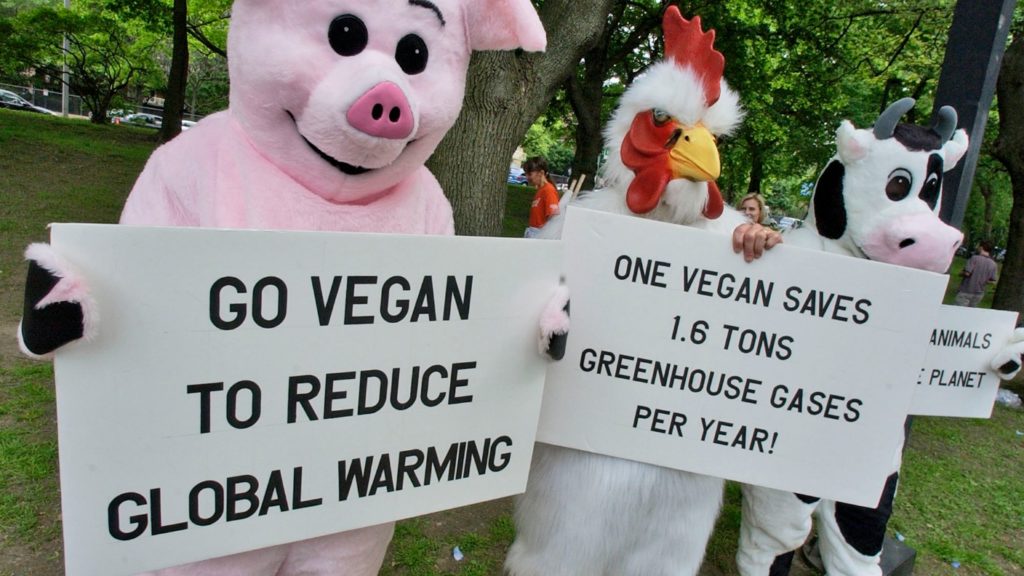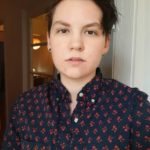
The term ‘sustainability’ has been critiqued as being performative and devoid of meaning. Sustainability at its core is understood as the drive towards maintaining ecological balance. It is a word that inspires strategies that are greener and considers the consequences and potential impact of extractive industries and depletion of natural resources on future generations. However, sustainability as a term has been misused, manipulated, and commodified. As vegan organizations grapple with critiques of colonialism and white supremacy, it is imperative to do the work to decolonize this movement and imagine a just vegan sustainability framework. In this piece, I offer recommendations on how to decolonize sustainability and fight for land justice, animal liberation, and food sovereignty in order to save the Earth and ourselves. It is time for a total overhaul of our food system itself.
Sustainability for Who?
This question of ‘sustainability for who’ is at the heart of this conversation. While affluent countries in the Global North emit the majority of emissions behind global climate change, countries in the global South not only face more consequences, but also are scapegoated in discussions of climate justice. If sustainability is operationalized as prolonging the current economic system and keeping things ‘business as usual,’ marginalized communities, both human and nonhuman, will continue to suffer.
In many ways, sustainability has been weaponized against the Global South and other communities that have been historically harmed by colonizing nations. The most obvious and insidious use of sustainability as a continued form of colonialism concerns population control. This discourse posits that the current amount of resources on the planet cannot sustain the current population and, therefore, countries with high birth rates should introduce population regulations. This discourse is saturated in white nationalism, is built on the continuing legacy of genocide and eugenics, and is integral to the contemporary ecofascist movement.
Usually this ‘family planning’ rhetoric is espoused by white environmentalists from the global North, such as Carter Dillard, Senior Policy Advisor to the Animal Legal Defense Fund who founded the family planning organization Having Kids, concerning rising population in the Global South. Dillard’s argument for a family planning modeled built with equity in mind posits that the most vulnerable population: children, specifically future children. As he argues, a human rights based approach “would protect [children] from being brought into the world beneath a particular threshold of well-being,” meaning that an unborn child would be more ethical, under this framework, than a poor child.
Dillard is aware that there is “a lot of history — around eugenics, foreign aid, welfare reform, etc. — [that] supports [the] argument…[that] focusing on population is actually a way of targeting the poor and people of color, rather than targeting the rich white men driving the fossil-fuel industries” but decides to instead focus on the to-be-born who he believes ethically should stay unborn. This continuation of colonial logics saturated in sustainability rhetoric illustrates that a new conception of sustainability is necessary to move forward towards a just future. I believe that integral to this conception of sustainability is an analysis of what historic harms have been done to previously colonized countries, how capitalism continued to propagate extractive industries in these nations, and how the Global North will hold itself accountable for this legacy of climate change.
Decolonizing Sustainability
What would a sustainable future that encompasses the needs and considerations of the Earth and nonhuman animals look like from a decolonial perspective? Any future-oriented vegan organization must be focused on acknowledging its pattern of centering white male voices from the Global North and espousing damaging colonial rhetoric. Doing this work—not to perform solidarity but to enact it – begins the slow process of building relationships with communities that the vegan movement has marginalized and tokenized.
While not a vegan organization, groups could learn a lot from Soul Fire Farm. Soul Fire Farm is a Black-led multi-racial sustainable farm that challenges injustice in the food system and it is also leading a reparations movement for Black farmers. Case studies like Soul Fire Farm offer examples of how to do food justice right:
- Build community and partner with activists, networks, institutions, and indigenous tribes.
- Create spaces to heal from generational trauma.
- Offer solidarity-shares and distribute to your communities.
- Tell stories and raise historically marginalized voices and histories.
- Engage in radical self care and create a healthy work culture.
- Participate in regenerative farming practices based on respect for non/humans.
- Create workshops that equip marginalized folks with the tools to create their own movements.
- Collaborate with and act in solidarity with indigenous communities.
- Give your land back to Black-Indigenous farmers.
It is only through true, non-performative reparations that we can undo the harm of food apartheid together.
This work is necessary in order to grow regional partnerships with sister organizations and begin working towards sustainable farming, environmental stewardship models, and food justice. Consider language justice and indigenous land ownership throughout entire project, build a portfolio of insights from model organization’s programming, and consider the advice of land and farm elders. Always ask, “How will the work stay grounded in truth and reconciliation between black and indigenous people? How will these communities be provided access to power building opportunities? How can my organizations create autonomous spaces for these communities?”
Vegan Sustainability
This conversation concerning sustainability is tackled directly in the new film, “We Fly, We Crawl, We Swim” by the collective Just Wondering and has been celebrated in film showings across the world. Just Wondering creates animations that make posthumanist and critical animal studies theories digestible and understandable. Their videos also challenge the status quo and illustrate how normative power structures are inherently oppressive and marginalized people, nonhumans and the planet “We Fly” argues that environmental justice cannot be accomplished without challenging the current systems at fault for pollution—capitalism and its obsession with consumption and commodification. Just Wondering’s solution: creating a multispecies society that views the more-than-human world as kin and changes our economic system with their needs and consideration in mind.
A true sustainability—one that not only regulates harm but abolishes it—is predicated on the embracing of a multi-species liberation. Performing sustainability in order to continue extractive practices only reifies the structures that support this exploitation of people, non-human animals, and the environment. In order to build a multi-species solidarity future, it is imperative that we not only predicate social justice movements on environmental justice, but that we also reform our current economic system towards a more just commons-based society that includes the needs of non-human actors and actants. I view this framework as a ‘vegan sustainability’ and believe this is the sustainability we should work towards in the future.
Vegan sustainability is built upon the following tenants:
1) Animals and the environment are worthy of care and moral consideration.
2) Capitalism is the underlying current that is behind the current commodification and exploitation of people, nonhuman animals, and the environment.
3) Nonhuman population deserve recognition of their autonomy and should be viewed as political persons.
4) Harm has been wrecked on non-human and marginalized human communities and these population deserve accountability and reparations for this harm.
5) A just world and just future outside of our current system is possible and attainable.
Just Wondering’s main argument is one of idealism, not self-defeating pessimism. They posit that it is not only conceivable but achievable to imagine and create a society that is anti-capitalism, anti-specieisism, anti-white supremacy, and anticisheteronormativity. It is through this framework of vegan sustainability, an off-shoot of the revolutionary potential of vegan politics, that we can move towards an economic reformation outside of our contemporary systems of violence and towards total liberation.
 Z. Zane McNeill is an activist-scholar, co-editor of Queer and Trans Voices: Achieving Liberation Through Consistent Anti-Oppression, and the founder of
Z. Zane McNeill is an activist-scholar, co-editor of Queer and Trans Voices: Achieving Liberation Through Consistent Anti-Oppression, and the founder of
Sparks & McNeill.
